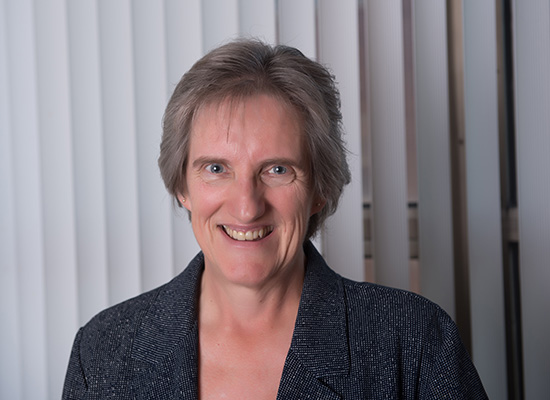Interprofessional education workshop puts CLS students among health care team
Wayne State University’s Eugene Applebaum College of Pharmacy and Health Sciences is one of only a handful of colleges nationwide that houses both a PharmD program and a variety of other professional programs in health care. With this unique infrastructure, WSU Applebaum has a built-in opportunity to train students in interprofessional practice, which is critical to patient safety and quality of care.
Interprofessional education (IPE) teaches communication, collaboration and cooperation in patient care by bridging understanding of health professions among students across its programs. IPE has been integrated into curricula at WSU Applebaum for decades, and in 2019 a faculty taskforce was created to provide even more IPE opportunities for students beyond their required training.
One such opportunity took place Jan. 26 and 28, 2021, when nearly 300 students from across WSU Applebaum participated in a virtual workshop that was deliberately designed to cover various IPE core competencies including roles and responsibilities, values and ethics, communication and cultural competence. Clinical Laboratory Science was one of nine programs that participated. Others included nurse anesthesia, occupational therapy, pathologists’ assistant, pharmacy, physical therapy, physician assistant studies, radiation therapy technology and radiologic technology.

“I served as a facilitator for interprofessional discussions and I found the students to be very interested and engaged,” said CLS Program Director Karen Krzisnik Apolloni. “This was a great opportunity for students to learn more about different health professions, and a great opportunity for CLS students to educate students in other programs about the role and importance of the clinical laboratory scientists in health care.”
The IPE workshop was built around a case of a patient presenting with a fracture, chronic pain, along with various other health and mental comorbid diseases. With guidance from a faculty facilitator, participants will work together in breakout groups comprised of students from all nine programs to appropriately assess and address the health care needs of the patient, providing students the opportunity to “be in each other's shoes” and experience the roles and responsibilities of each profession.
"Being a CLS student has made me view the medical field in depth. I got to appreciate the aspect of everybody's role as a provider with a similar vision, which is taking care of the patients and their needs,” said Jehad Saif, a CLS student anticipating a 2021 graduation. “I loved the experience and understood the importance of our role. We are a huge factor in decision-making and the heart of the hospital. Correct lab results allow for early diagnosis to minimize the risks for further diseases."
Through the case study, students focused on developing a holistic patient care plan in a climate of mutual respect and shared values. A key part of the workshop was students’ critical reflection on their understanding of the social determinants of health, health equity and disparity in the provision of fair care for this patient.
Interprofessional education workshops like this teach students how to collaborate across disciplines to provide a higher standard of care, an essential skill they will need as future practitioners. Participants in the 2020 session reported that they learned about the full scope of each profession and how each would assess the patient in different ways, getting to know what other disciplines bring to the table in terms of patient care.

CLS Assistant Clinical Professor MaryAnne Stewart, who was a panelist and a facilitator of the event, said, “Coming from a smaller program within the college, I knew this was our opportunity to bring awareness to our profession by highlighting the great work we do. The goals of the activity, for me, were to promote professionalism and problem solving as foundations for system thinking.”

